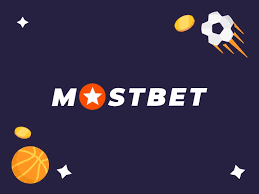
The Intersection of Social Media and Gambling in Modern Society
The rapid advancement of technology has significantly transformed how we interact with one another and engage in various activities, including gambling. The rise of social media platforms and online gambling has created a unique intersection that shapes user behavior and addiction potential. This article delves into the intricate connection between Social Media and Gambling in Azerbaijan https://antony-santos.com/career/ and gambling, illuminating its effects on society, the challenges it presents, and the factors driving its growth.
Understanding Social Media’s Influence on Gambling
Social media has become an indispensable part of our daily lives, serving as a primary means of communication, entertainment, and information sharing. Platforms such as Facebook, Twitter, Instagram, and TikTok not only connect individuals but also serve as potent marketing tools for various industries, including gambling. With billions of users worldwide, social media presents an opportunity for gambling companies to reach a vast audience, promote their services, and engage with potential customers.
The integration of gambling advertisements into social media feeds has created an environment where betting becomes more accessible and normalized. Users are often exposed to sponsored content that promotes online casinos, sports betting platforms, and even gaming apps that incorporate gambling features. This pervasive presence can lead to increased interest in gambling activities, particularly among younger audience segments who are more inclined to embrace these platforms.
The Role of Influencers in Promoting Gambling
Influencer marketing has taken the social media landscape by storm, and the gambling sector is not immune to this trend. Influencers—individuals with substantial followings—are often tapped by gambling companies to promote their platforms and services. This strategy proves effective because influencers lend credibility to the gambling experience and encourage their followers to try out the promoted platforms.

Many influencers showcase their gambling experiences, sharing wins and losses, which creates a sense of community among their followers. This online camaraderie can lead to a heightened interest in gambling, prompting more individuals to place bets or engage in online games. However, this can also have detrimental effects, as it might glamorize gambling and obscure the potential risks associated with addiction, financial loss, and irresponsible behavior.
Impact on Behavior and Addiction
The convergence of social media and gambling has raised concerns regarding its effects on behavior and the potential for addiction. The ease of access to online gambling platforms through social media can lead to impulsive betting and a significant increase in gambling frequency. Users may find it challenging to resist the temptations of placing bets, especially when they are bombarded with enticing promotions and the excitement of potential wins.
Research indicates that younger adults, particularly Gen Z and Millennials, are more susceptible to developing gambling-related issues due to their immersion in both social media and online betting. The availability of gambling apps and social media interactions creates an environment where gambling becomes normalized, blurring the lines between casual gaming and addictive gambling behaviors.
Regulation and Responsible Gaming
As the relationship between social media and gambling continues to evolve, regulatory bodies worldwide are grappling with how to address the challenges posed by this intersection. Governments and regulators are increasingly focusing on responsible gaming initiatives and implementing stricter advertising guidelines for gambling on social media platforms.

Promoting responsible gambling means ensuring that players are aware of the risks involved, including the potential for addiction and financial harm. Social media companies and gambling operators must work together to foster a safer online environment. This can include age verification measures, clearer messaging about responsible gambling, and providing resources for individuals who may need help with gambling addiction.
The Future of Social Media and Gambling
The future landscape of social media and gambling remains uncertain, but it is likely to continue evolving with advancements in technology, changes in regulations, and shifting cultural attitudes. The use of artificial intelligence (AI) and data analytics could enhance personalized advertising for gambling platforms, making it even easier to target potential customers based on their online behavior.
Moreover, the rise of virtual reality (VR) and augmented reality (AR) could transform the gaming experience, allowing users to engage in immersive gambling environments through social media platforms. While these innovations offer exciting opportunities for the gambling industry, they also warrant careful consideration of the implications for responsible gambling and user well-being.
Final Thoughts
The intersection of social media and gambling is a multifaceted issue that poses both opportunities and challenges for individuals and society as a whole. As gambling becomes increasingly intertwined with social media marketing and influencer culture, it is essential for stakeholders—governments, regulators, social media platforms, and gambling operators—to collaborate effectively to mitigate the risks associated with gambling addiction and promote responsible behavior.
Ultimately, understanding the complex dynamics between social media and gambling is crucial for navigating this evolving landscape and ensuring that individuals can engage in these activities in a manner that prioritizes safety, health, and well-being.
